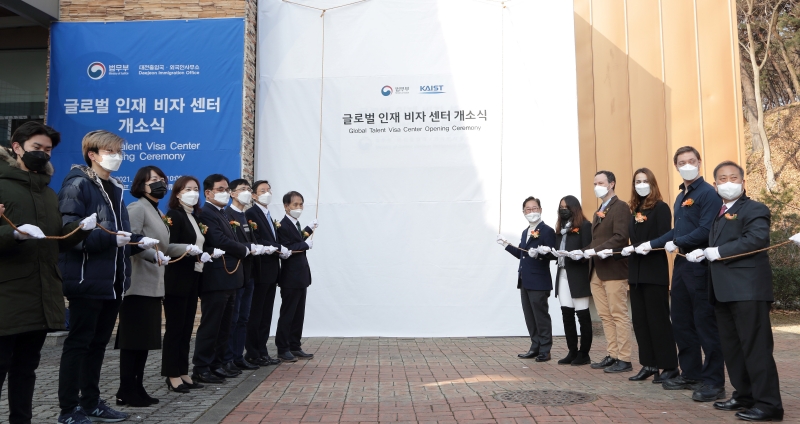
The Ministry of Justice on Jan. 17 announced that its fast-track program with an assistance system for foreign talent in science and technology will be launched as early as the first half of this year. The photo shows the Global Talent Visa Center opened last month at the Daedeok campus of the Korea Advanced Institute of Science and Technology, or KAIST, in Daejeon. (Ministry of Justice)
By Min Yea-Ji and Yoon Sojung
Foreign students in Korea pursuing advanced degrees and doctorates in science and technology will receive more support for staying in the country.
The Ministry of Justice on Jan. 17 said its fast-track program with an assistance system for global talent in science and technology will be launched in the first half of this year. The initiative seeks to discover superior human resources from abroad in science and technology to secure core human resources for future-oriented fields.
Those eligible for the program are non-Korean students who earned a master's degree or Ph.D. in Korea at 37 specialized universities or research institutions closely related to the Fourth Industrial Revolution or national economic development.
After the program takes effect, qualified applicants can receive permanent residence or Korean nationality in three years instead of six. The number of stages in the process will also be shortened from five to three.
Holders of the D-2 visa for foreign students in Korea must simultaneously receive an advanced degree and get a job in Korea to receive the F-2 residence visa three years later after changing their visa status to the professional worker visas E-1, E-3 or E-7. The new system, however, will allow D-2 holders to get the F-2 immediately after graduation regardless of job status as long as they receive a degree and continue their research.
If F-2 holders produce outstanding research achievements, they can be immediately eligible for special naturalization. If they continue their research, they can receive the F-5 permanent residence visa three years later without the income precondition for acquiring permanent residence or Korean citizenship.
The ministry pledged to provide customized support such as managing the pool of foreign students in Korea, designating an officer in charge and offering individual consultations.
jesimin@korea.kr